Communication of Young Deaf Children and their Caregivers in Multilingual Settings: Building Multi-Stakeholder Partnerships for Change
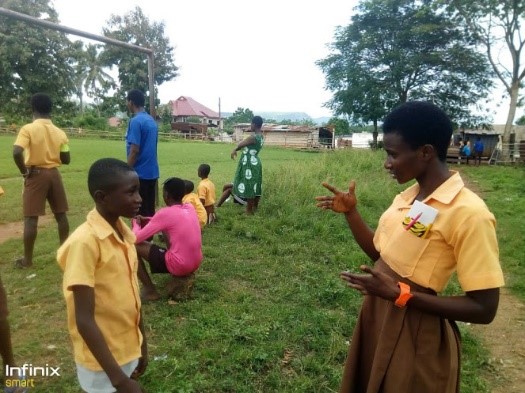
- Date
- Wednesday 6 December 2023, 4pm - 6pm
- Location
- tbc
- Category
- Upcoming Events
CLER/ICY Cross-Centre Symposium
This hybrid event includes BSL and ISL interpreters. The event is followed by an evening reception
Please click here to register
Keywords: childhood deafness, multilingualism, communication, collaboration, early support, intervention

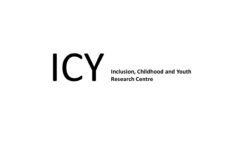
This symposium discusses findings from a programme of collaborative research into the language and communication needs of young deaf children and their caregivers in different multilingual contexts in the UK and Ghana. Language and communication research with young deaf children often does not represent the complexity of their multilingual and different sociocultural development contexts. We therefore lack informed and context-sensitive approaches to early language support that are inclusive of diverse cultural and language biographies and home language practices. This symposium provides a forum for extending this knowledge base and diversifying support practices.
We introduce three case studies led by the University of Leeds. The first, funded by the British Academy, is based on a collaboration with the University of Education, Winneba, education and health practitioners, and deaf leaders in Ghana. The other two studies are part of a Horizon 2020 Marie Skłodowska-Curie Action and involved a collaboration with the Yorkshire Auditory Implant Centre. Collectively, the studies combine ethnographic (interview and observation) and multimodal video-based data to document the language learning contexts and behaviours of young deaf children, the experience of caregivers, and the perspectives of education and health practitioners and deaf community leaders.
We invite parents/caregivers, education and health practitioners, deaf organisations, charities, and researchers involved in the early support of young deaf children to join us in a conversation about the opportunities of collaborative and deaf-led intervention strategies, approaches to partnership working and the potential of video-based multilingual materials for families, communities, and practitioners.
Convenors
Ruth Swanwick, Elettra Casellato, Nathalie Czeke - University of Leeds, United Kingdom
Daniel Fobi - University of Education, Winneba, Ghana
Ruth Swanwick - The development of context-sensitive language and communication support for young deaf children and their caregivers in multilingual settings
The paucity of comprehensive research on multilingual practices among young deaf children and their caregivers has constrained the development of informed support and intervention practices that are inclusive of the complexity of individual repertoires and diverse patterns of early language socialisation in different multilingual societies. In this introductory session we consider what it takes to develop context-sensitive approaches to early language support that builds on the language resources and practices of families and communities in different sociolinguistic contexts. We highlight the specific cases of historically multilingual societies with a long tradition of multilingual communication and immigrant families with exposure to new language and cultural contexts. We pose two questions to be explored through the symposium sessions and discussion:
- What do we need to know about deaf children’s early language and communication repertoires in multilingual environments to support ways of communicating in those environments?
- What kinds of partnership working can most effectively build expertise and strong support practices in those environments?
- How can we ensure that future research and practice is inclusive of deaf children and families in underrepresented socio-cultural contexts and minorities?
Elettra Casellato - The Acquisition of Multiple Spoken Languages in deaf children with Cochlear Implants who grow up in Plurilingual Contexts
The language development of children who are d/Deaf and hard of hearing has typically been assessed by comparing their performance to that of their hearing, 'typically developed' peers. Few researchers have posed their attention on the role of context and amount of exposure to each language as significant for these children's language development. This study aims to bring attention to these aspects as we believe they are crucial to understanding their language and communication development. This study aims to highlight how contextual factors play an important role in shaping the language and communication development of these children. This would allow the creation of a complete picture of the child's language abilities, ultimately helping professionals and families to support the child appropriately and allowing them to reach their fullest potential.
Nathalie Czeke - Access to and opportunities for communication in early caretaker-child interactions through multimodal communication
In collaboration with the Yorkshire Auditory Implant Service this research examines how multimodal communicative resources (auditory, visual, and tactile) are used to support interactions between caretakers and their deaf children (9-24 months), especially in the time between early diagnosis of hearing loss and the onset of intervention. This is a time when consistent access to language – spoken and/or signed – is often not yet available to deaf children, and informed guidance is limited for parents. With systematic multimodal analysis of communicative behaviour observed during video-recorded play sessions, we aim to provide caretakers with visual feedback and strategies on how to make communication more accessible to their child during everyday interactions like play. We point out the potential of naturally available multimodal resources to make meaning and support opportunities for communication during early caretaker-child interactions in the critical period of the first year/s of life that form the building blocks for later (language) development.
Dani Fobi - Early years language and communication support for young deaf children and their caregivers in Ghana
The aim of this collaborative study between the University of Leeds and the University of Education, Winneba was to examine the collaboration between health and education and the support of deaf adults in educating young deaf children and their caregivers in Ghana. Infrastructural support exists in early identification and family-centred early intervention for young deaf children and their families in most economically rich countries in America, Australia, and Europe; however, this continues to be an unmet need in low- and middle-income countries like Ghana. Therefore, in this study, we interviewed educators of the deaf, and hearing health practitioners from rural and urban communities to provide context-sensitive data on the available resources and the collaborative support for the children and their families in early years. We also videoed the interactions between the deaf children and their caregivers to highlight the multimodal communication strategies that exist when there are asymmetric communication needs between deaf children and their families. Deaf adults were also interviewed on their roles in supporting early childhood care and education for young deaf children and their caregivers. We concluded by highlighting the existing working infrastructure and support for deaf children and their families and suggesting ways of building the research and leadership capacity of deaf adults to facilitate their support for the children and their families.
Invited Contributors
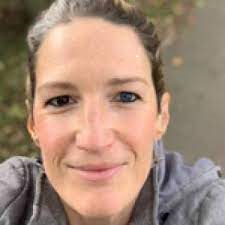
Kate Rowley UCL, UK: a deaf psycholinguist, expertise in sign language teaching, deaf education, sign linguistics, and psychology, interested in research that benefits deaf children and their parents/guardians, parent of a deaf child.
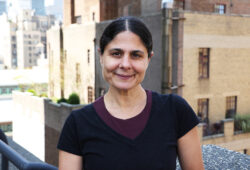 Elaine Gale – CUNY, USA; deaf researcher whose work promotes the role of deaf leadership in early childhood education, chairs the Deaf Leadership International Alliance (DLIA), an organization established to advocate deaf adults collaborating with professionals and connecting with young deaf children and their families
Elaine Gale – CUNY, USA; deaf researcher whose work promotes the role of deaf leadership in early childhood education, chairs the Deaf Leadership International Alliance (DLIA), an organization established to advocate deaf adults collaborating with professionals and connecting with young deaf children and their families
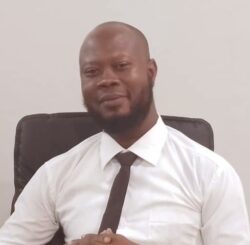 Richard Doku holds a Bachelor’s degree in Special Education from the University of Education, Winneba (UEW), Ghana. He is deaf and a mathematics teacher, and the sign language project officer with the Ghana National Association of the Deaf (GNAD). Richard’s experience as a deaf teacher and many years of working with the GNAD led to his role as Research Assistant in a British Academy Global Challenges Research Funded research on early education for young deaf children and their caregivers in Ghana, a collaboration between the University of Leeds, UK and UEW. His research interests are in deaf leadership and early education for deaf children. He is currently a final year Master of Philosophy in Special Education student. He hopes to build his research network with academics across the globe to support early education for deaf children in Ghana (in particular). Contact information: saintdoku1@gmail.com
Richard Doku holds a Bachelor’s degree in Special Education from the University of Education, Winneba (UEW), Ghana. He is deaf and a mathematics teacher, and the sign language project officer with the Ghana National Association of the Deaf (GNAD). Richard’s experience as a deaf teacher and many years of working with the GNAD led to his role as Research Assistant in a British Academy Global Challenges Research Funded research on early education for young deaf children and their caregivers in Ghana, a collaboration between the University of Leeds, UK and UEW. His research interests are in deaf leadership and early education for deaf children. He is currently a final year Master of Philosophy in Special Education student. He hopes to build his research network with academics across the globe to support early education for deaf children in Ghana (in particular). Contact information: saintdoku1@gmail.com
 Derrick Asomaning is a final year MPhil student at the Department of Special Education, University of Education, Winneba, Ghana. In 2010, he furthered his education at the Accra College of Education in pursuit of a Diploma in Basic Education. He obtained his Bachelor's degree in Special Education and Social Studies at the University of Education, Winneba (UEW) in 2018. Derrick has been teaching for ten (10) years, in many schools (regular and special), including the Tabita D/A Basic School, Sekondi School for the Deaf, and the Senior High Technical School for the Deaf. Contact: asomaningderrick1@gmail.com
Derrick Asomaning is a final year MPhil student at the Department of Special Education, University of Education, Winneba, Ghana. In 2010, he furthered his education at the Accra College of Education in pursuit of a Diploma in Basic Education. He obtained his Bachelor's degree in Special Education and Social Studies at the University of Education, Winneba (UEW) in 2018. Derrick has been teaching for ten (10) years, in many schools (regular and special), including the Tabita D/A Basic School, Sekondi School for the Deaf, and the Senior High Technical School for the Deaf. Contact: asomaningderrick1@gmail.com
Biographies
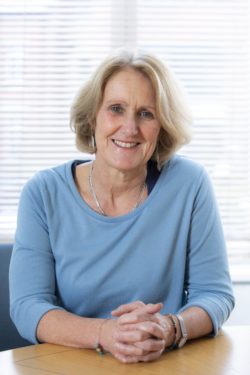 Ruth Swanwick is Professor in deaf education at the University of Leeds in the School of Education. She is also deputy Head of School, and co-director of the Faculty of Social Sciences Research Methods Centre. Ruth‘s research activities encompass childhood deafness, language and learning, inclusive and bilingual education, and teacher development. Her particular area of specialism is deaf children’s multilingual and multimodal communication and language learning, and the development of pedagogies and practitioner understanding. She is interested in how we research and understand deaf children’s multilingual lives and language experience, and how we can use this knowledge to develop contextually sensitive ways of supporting early development, care, and education. She is currently developing the impact activities that are the outcome of collaborative UK-Ghana project that investigated the early education for young deaf children and their caregivers in Ghana. Ruth is also the UK PI for a Marie Skłodowska-Curie Innovative Training Network that examines communication for children with hearing impairment to optimise language development (EU Horizon 2020).
Ruth Swanwick is Professor in deaf education at the University of Leeds in the School of Education. She is also deputy Head of School, and co-director of the Faculty of Social Sciences Research Methods Centre. Ruth‘s research activities encompass childhood deafness, language and learning, inclusive and bilingual education, and teacher development. Her particular area of specialism is deaf children’s multilingual and multimodal communication and language learning, and the development of pedagogies and practitioner understanding. She is interested in how we research and understand deaf children’s multilingual lives and language experience, and how we can use this knowledge to develop contextually sensitive ways of supporting early development, care, and education. She is currently developing the impact activities that are the outcome of collaborative UK-Ghana project that investigated the early education for young deaf children and their caregivers in Ghana. Ruth is also the UK PI for a Marie Skłodowska-Curie Innovative Training Network that examines communication for children with hearing impairment to optimise language development (EU Horizon 2020).
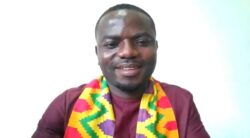 Daniel Fobi is a lecturer in deaf education and inclusive education, a sign language interpreter, and graduate programmes coordinator at the University of Education, Winneba, Ghana. He is also a visiting research fellow at the School of Education, University of Leeds. Dani worked as project officer for a British Academy Global Challenges Research Funded project on ‘Early education for young deaf children and their caregivers in Ghana’, which was a collaboration between the University of Leeds, UK and the University of Education, Winneba. His research interests are in early education for deaf children, inclusion for special needs individuals in various contexts, multimodal communication, and sign language interpreting. Dani is currently working to support scholarship in sub-Saharan Africa and building the academic and research capacity of researchers of the region by providing mentorship and professional development training to teachers. Email: dfobi@uew.edu.gh
Daniel Fobi is a lecturer in deaf education and inclusive education, a sign language interpreter, and graduate programmes coordinator at the University of Education, Winneba, Ghana. He is also a visiting research fellow at the School of Education, University of Leeds. Dani worked as project officer for a British Academy Global Challenges Research Funded project on ‘Early education for young deaf children and their caregivers in Ghana’, which was a collaboration between the University of Leeds, UK and the University of Education, Winneba. His research interests are in early education for deaf children, inclusion for special needs individuals in various contexts, multimodal communication, and sign language interpreting. Dani is currently working to support scholarship in sub-Saharan Africa and building the academic and research capacity of researchers of the region by providing mentorship and professional development training to teachers. Email: dfobi@uew.edu.gh
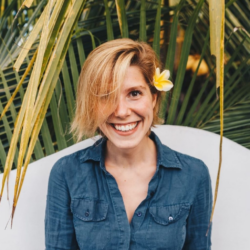
Elettra Casellato is currently a Marie Sklodowska-Curie ITN Early-Stage Researcher at the University of Leeds, where she investigates the acquisition of multiple languages in deaf children who wear cochlear implants. With a background in Neuroscience, she is interested in spoken and sign language acquisition, spoken and sign language assessments, and Neuroethics in particular, together with brain plasticity after cochlear implantation and the development of valid and reliable assessments.
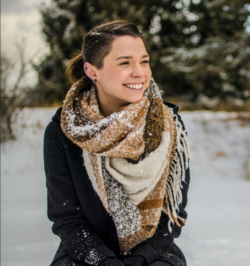 Based at the University of Leeds, Nathalie Czeke is an Early-Stage Researcher associated with the Marie-Skłodowska Curie Innovative Training Network – Comm4CHILD. Her research focuses on early caretaker-child interactions between individuals who do not share the experience of being deaf or having hearing. More specifically, she looks at how individuals with different experiences and resources of communication draw on multilingual and multimodal communication strategies to accommodate sensory and communicative needs in initiating and sustaining joint attention. Nathalie has a background in linguistics and has been involved in (first) language acquisition research as a research fellow, both at the Baby Speech Lab at the University of Konstanz, Germany, and the UBC Infant Studies Centre in Vancouver, Canada. Her area of expertise lies in (deaf) children's early language development, multimodal communication, and implications for everyday interactions.
Based at the University of Leeds, Nathalie Czeke is an Early-Stage Researcher associated with the Marie-Skłodowska Curie Innovative Training Network – Comm4CHILD. Her research focuses on early caretaker-child interactions between individuals who do not share the experience of being deaf or having hearing. More specifically, she looks at how individuals with different experiences and resources of communication draw on multilingual and multimodal communication strategies to accommodate sensory and communicative needs in initiating and sustaining joint attention. Nathalie has a background in linguistics and has been involved in (first) language acquisition research as a research fellow, both at the Baby Speech Lab at the University of Konstanz, Germany, and the UBC Infant Studies Centre in Vancouver, Canada. Her area of expertise lies in (deaf) children's early language development, multimodal communication, and implications for everyday interactions.
CLER and ICY
About the Centre for Language Education Research (CLER)
About the Centre for Inclusion, Childhood, and Youth (ICY)
